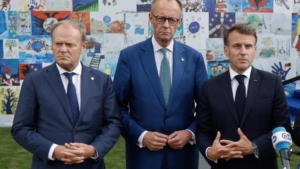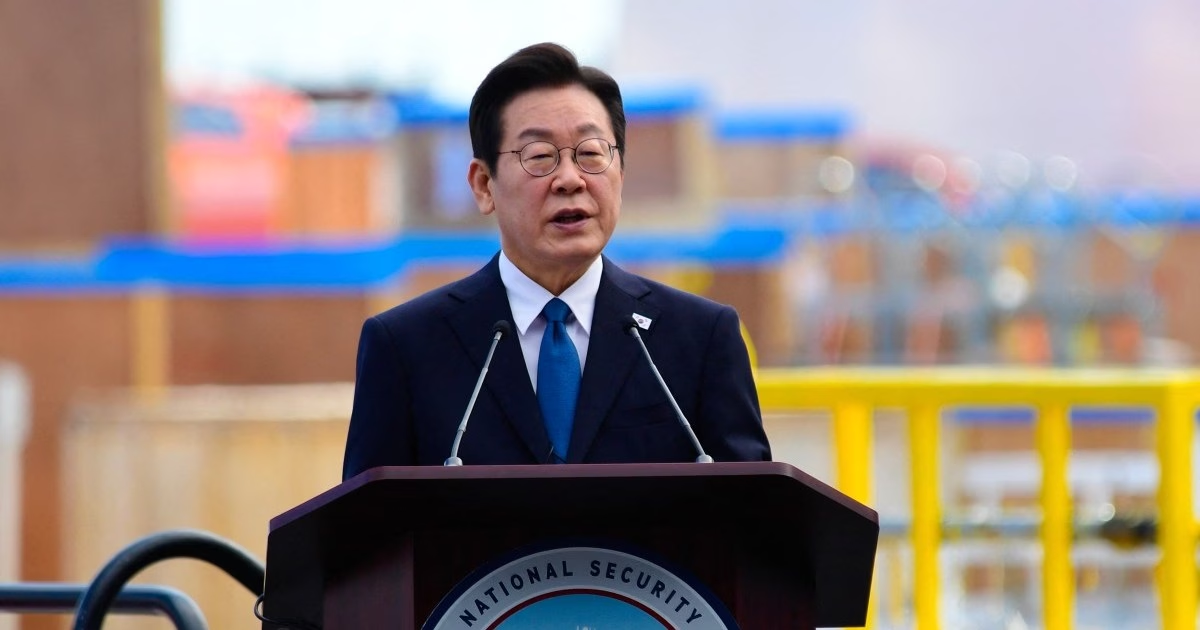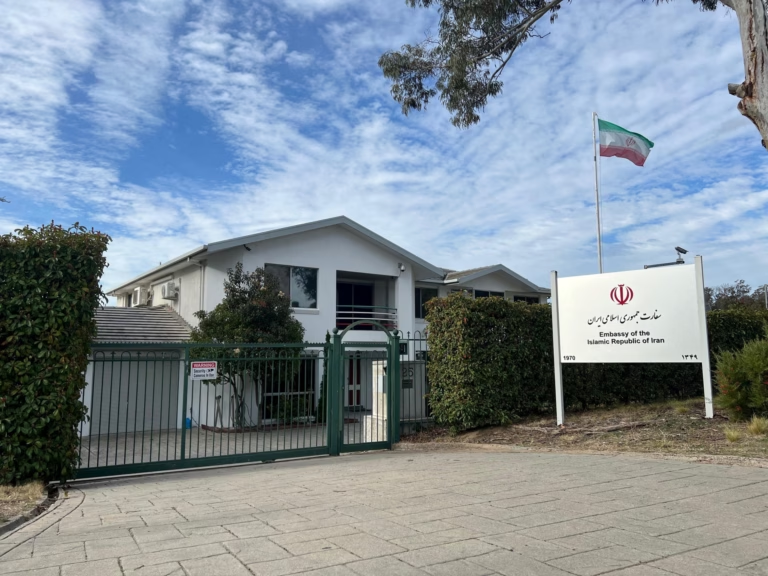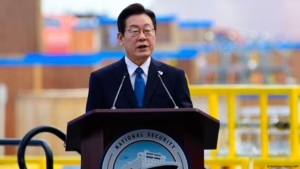North Korea criticizes South Korean President Lee Jae-myung’s stance on nuclear disarmament and security alliance with the US.
North Korea has accused South Korean President Lee Jae-myung of being a “confrontation maniac” after his speech in the United States, where he advocated for denuclearisation on the Korean Peninsula.
During a meeting with US President Donald Trump, Lee emphasized that denuclearisation is essential for achieving permanent peace between the Koreas and will enable the South Korea-US alliance to be enhanced in a “global context”.
In response, the state-run Korean Central News Agency (KCNA) in North Korea condemned Lee, stating that his speech exposed him as a “hypocrite” to the entire world.
“His behavior abroad clearly demonstrated that the Republic of Korea’s scheme for confrontation with the Democratic People’s Republic of Korea can never change,” the KCNA said in an unsigned commentary.
“Since Lee Jae-myung’s hostile intentions were unveiled, his statements about ‘denuclearisation’ have been proven to be sheer sophism,” added the KCNA, acting as a mouthpiece for Pyongyang.
“We take this opportunity to remind him that our position as a nuclear weapons state is an inevitable option that correctly reflects the external hostile threat and changes in the global security structure,” the commentary continued.
Denuclearisation is already “theoretically, practically, and physically extinct”, according to the KCNA, calling Lee’s vision of denuclearisation “an unrealistic dream, like trying to grasp a cloud in the sky”.
Lee, who took office in June, has vowed to improve relations with Pyongyang after years of strained inter-Korean ties under his conservative predecessor, the impeached former President Yoon Suk-yeol.
However, North Korea has repeatedly rejected these efforts.
Earlier this month, North Korean leader Kim Jong Un’s powerful sister, Kim Yo Jong, harshly criticized the South Korea’s attempts at détente, stating, “We do not care about them and are not interested in them.”
North Korea, which has been subject to multiple rounds of US and United Nations sanctions over its weapons programs, is believed to possess approximately 50 nuclear warheads and enough nuclear material for dozens more, according to the Arms Control Association.
During a meeting with US President Donald Trump, Lee emphasized that denuclearisation is essential for achieving permanent peace between the Koreas and will enable the South Korea-US alliance to be enhanced in a “global context”.
In response, the state-run Korean Central News Agency (KCNA) in North Korea condemned Lee, stating that his speech exposed him as a “hypocrite” to the entire world.
“His behavior abroad clearly demonstrated that the Republic of Korea’s scheme for confrontation with the Democratic People’s Republic of Korea can never change,” the KCNA said in an unsigned commentary.
“Since Lee Jae-myung’s hostile intentions were unveiled, his statements about ‘denuclearisation’ have been proven to be sheer sophism,” added the KCNA, acting as a mouthpiece for Pyongyang.
“We take this opportunity to remind him that our position as a nuclear weapons state is an inevitable option that correctly reflects the external hostile threat and changes in the global security structure,” the commentary continued.
Denuclearisation is already “theoretically, practically, and physically extinct”, according to the KCNA, calling Lee’s vision of denuclearisation “an unrealistic dream, like trying to grasp a cloud in the sky”.
Lee, who took office in June, has vowed to improve relations with Pyongyang after years of strained inter-Korean ties under his conservative predecessor, the impeached former President Yoon Suk-yeol.
However, North Korea has repeatedly rejected these efforts.
Earlier this month, North Korean leader Kim Jong Un’s powerful sister, Kim Yo Jong, harshly criticized the South Korea’s attempts at détente, stating, “We do not care about them and are not interested in them.”
North Korea, which has been subject to multiple rounds of US and United Nations sanctions over its weapons programs, is believed to possess approximately 50 nuclear warheads and enough nuclear material for dozens more, according to the Arms Control Association.








